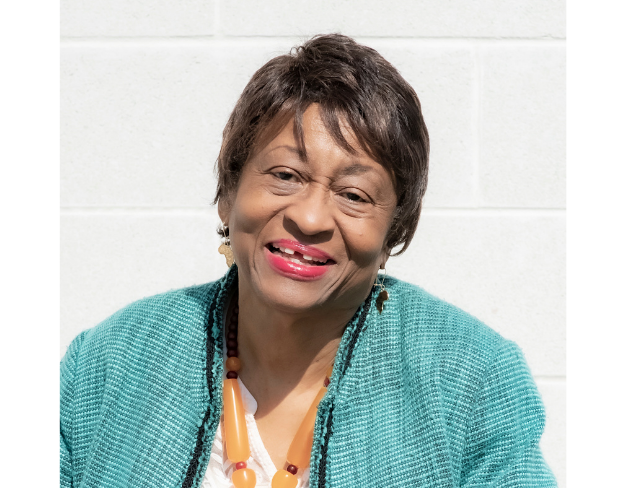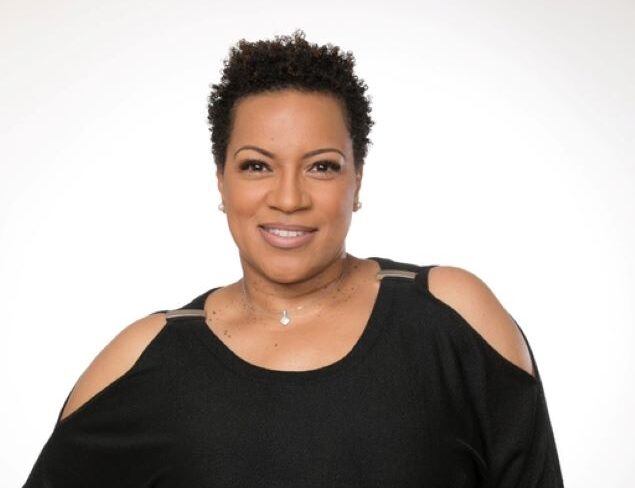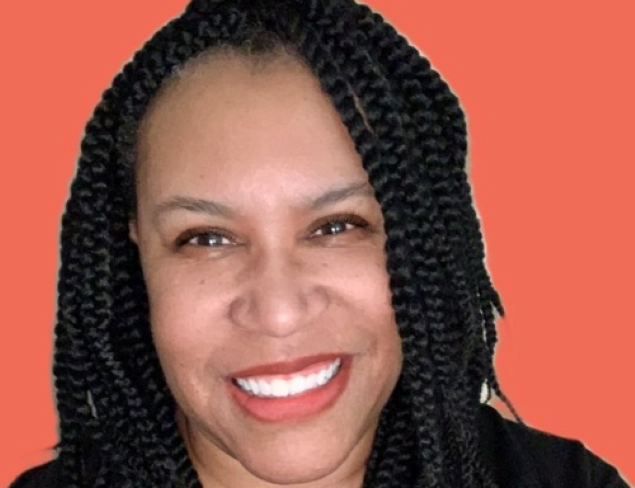Under 3 DC: Lessons in How Leading with Equity Creates Equity for Children and Families
Under 3 DC Coalition members Sia Barbara Ferguson Kamara, LaDon Love, and Kim Perry contributed to this blog.
Under 3 DC is a multisector, multiracial coalition that has built a mini movement resulting in a growing system of early childhood supports in Washington DC. The group has put equity at the center in every way – from ensuring broad representation on the coalition to its focused approach to the communities it serves. We learned from the group’s BUILD 2022 virtual conference presentation about many of its successes, just some of which include compensation for the child care workforce on par with public elementary educators, housing assistance for children and families experiencing homelessness, health and mental health supports for children and families, and, most recently, free, quality, publicly financed health insurance coverage for educators and all eligible employees of licensed early learning facilities. We were so taken by the unified presence of the coalition members, the degree of cross-sector engagement that characterizes their interactions, and the group’s many groundbreaking accomplishments that we wanted to learn more about how they have achieved so much and what lessons they have for how leaders in other states and communities can similarly help families and children most in need of support. Here’s what three members of the coalition – Sia Barbara Ferguson Kamara, LaDon Love, and Kim Perry – shared with us in a recent interview.
No One Group Has All of the Answers
In describing the uniqueness of Under 3 DC, Perry noted that what sets the coalition apart from others is that there are more than just early childhood experts at the table: “Our leadership is also comprised of experts with other content and skill-based knowledge in everything from organizing, health, and housing to budgets and fiscal policy.” For example, while the DC Fiscal Policy Institute tracks where money is coming from and where it’s going, the coalition’s communications team creates toolkits from that information to be sent to all the coalition members. Perry continued: “The health and mental health folks at the table serve to remind us we are addressing the whole child through critical investments in home visiting, HealthySteps, and Healthy Futures (early childhood mental health consultation).” Love added: “Jews United for Justice, whose constituency is White, mostly Jewish folks who care about what’s happening across sectors and communities within DC, were instrumental in countering the narrative that the affluent people of DC would oppose a tax increase to create pay parity for early education teachers. We all know we have to rely on each other – and we know that we can. Further, no meetings will take place with elected officials unless they represent the constituency and there’s diversity amongst the group, not just in perspective, but regarding race and class. We have learned to respect differences and find agreement because everyone understands that this work is bigger than any one person, organization, or sector.”
We Ask for More
“We understand the significant investment this work takes,” Love said. “We also understand that one of the strengths in coming together as a coalition is that you can think bigger, ask for more, demand more, and, as we have shown, get more. If we only go into the conversation asking for what we think we can get, we’re going to get less than that. We ask for what is needed and what we want.”
Our Historical Base
The diverse yet united coalition members draw strength from DC’s history of activism across ethnic and racial groups, as well as its supportive communities and business sector, and has capitalized on both its successes and setbacks. Kamara pointed out that “since the early 1960s, when DC was a test site for Head Start, through the passage of Pre-K for All DC and Birth-to-Three for All legislation, the city has a long worked across groups and sectors to improve outcomes for our youngest children.” It’s true that the District has been known for its liberal political ideology, and that some may think this alone is a surefire path to these kinds of victories. On the contrary, its wins have been neither a given nor easy. There have been instances when the coalition has had to work around entrenched opposition, including, for example, regarding the tax increase. Time after time, the group has drawn on both the collective and individual strengths of the coalition, as well as, as Love put it, “the legacy of the city’s trailblazing activists, to achieve our goals.”
A Funder that Lets its Grantees Lead
The willingness of a funder to trust its very diverse, multidisciplinary set of grantees to lead as they see fit, regardless of institutional changes that occur, is a gift. Perry stated, “Bainum Family Foundation, our silent partner, does not give direction as much as let the field provide a direction that makes sense for the initiative. Kamara added, “Our funder has listened, learned, guided, and debated, and has been in it for the long haul.”
Curiosity is Key
In discussing how the coalition got to where it is today, Love said, “When our executive committee first started getting into this work, everyone was responsible for going out and meeting not only with folks who had been doing work in the field for decades but also people who were on the outskirts who might have been looking at the issue from a different perspective. It’s that time that was taken at that beginning, and the cultivation of those relationships, that led to the broad coalition of people at the table today. Other states looking to build a broad coalition around a particular issue should be curious; you may not be aware that there are people in the state who are working on that issue and who, on their own, may not have been able to get traction. One-to-ones can be eye-opening.”
Being Data Driven
Kamara, underscoring the importance of being data driven, said, “We realized in the last few years of our campaign that we didn’t have all the data we needed. It’s important for people to be able to see the specifics in a variety of areas, e.g., how many people working in a program in each ward have insurance, how many have degrees, and that we were not just guessing at what is available or needed. Disaggregated data based on race and geography is essential.” The Fiscal Policy Institute was instrumental in showing, for example, that Black and Brown residents in DC were overtaxed in relationship to more affluent DC residents, an inequity that was important to highlight.
Engaging with the Community Closest to the Issues
Those closest to the issues often don’t have a lot of time to spare. They also don’t always see enough daily results to keep them involved. Given these realities, the group was asked how it manages to engage often marginalized members of the community. Love responded that “the coalition invites its constituency to monthly meetings. In addition, each organization within the coalition has its own constituency to whom it offers leadership development. Sometimes member organizations go directly to centers to meet teachers where they’re doing their work. For example, SPACEs in Action takes people through a process of telling their story. In that process, they build community with each other. People are expected to take information back to the setting in which they work and to their community.”
Housing at the Forefront
In DC, groups with a focus on housing have made significant strides in coming together as a group. Perry noted that The Fair Budget Coalition brought the coalition “into discussions about setting priorities for the funds that became available through the Home and Hearts Amendment Act of 2021, a tax increase providing revenue for both child care and housing, and the expanded Earned Income Tax Credit. At the end of budget season last year, we all recognized a deficit in our rapid rehousing program that was impacting a lot of families with young children; there would be no supports when those benefits expired, which would only contribute to the city’s homelessness and housing insecurity. We banded together to support more dollars for rapid rehousing.” Kamara added that in addition, “Some members of the coalition have been able to bring the information about Hearts and Homes to the many churches in DC focused on housing justice as they work on acquiring property to convert to housing, a day center, and facilities for skill building.”
Our “Secret Sauce”
If there is a special ingredient in the success of Under 3 DC, it’s that the coalition had everyone at the table from the very beginning with the understanding that organizations with more resources needed to meet the other organizations where they are. As Perry said, “We believe less in the idea that ‘If you build it, they will come’ than in going to see what’s happening in other spaces and being taught something.”
Celebration is another essential element. According to Love, “If it weren’t for all the contributions that individuals and organizations make, the campaign wouldn’t be able to do what it’s doing. We have to stop and say thank you – and celebrate each other and each win.”

Sia Barbara Ferguson Kamara
Sia is a DC Early Learning Collaborative (DCELC) Board Member. Before joining DCELC, she worked for 21 years as an Administrator of the District of Columbia’s Department of Human Services/Office of the State Superintendent of Early Care, serving under four Mayors in Washington, DC. Sia is an international early childhood systems consultant with the Open Society Foundations’ Early Childhood Program and the Ministry of Education in Liberia. Her work in Liberia includes co-developing national curriculum for pre-school teachers and assisting six colleges in establishing early childhood departments. Sia is also an active and impactful member of Under 3 DC.

LaDon Love
LaDon Love is the Executive Director of SPACEs In Action/SIA, a membership-based community organization in Wards 5, 7, and 8 in the District of Columbia, as well as in Montgomery County, Maryland. LaDon was at the helm when SIA was one of the lead organizations in the campaign that secured over $70 million in the DC budget to increase wages for early learning educators and millions to support health services for DC families raising children from birth to three. She is also a published photographer who uses her photography skills to document the work and tell the story of those directly impacted. She has received the Shirley Chisholm Leadership and Ms. Magazine Woman of the Year awards.

Kimberly Perry
Kimberly is one of the nation’s leading experts in child and youth advocacy and civic engagement. A former teacher turned lobbyist, Kimberly’s work building powerful campaigns and organizations to amplify citizen’s voices has resulted in critical policy changes to improve the lives of nearly 30 million children, youth and families across the globe. As DC Action’s executive director, she has set a vision to achieve racial equity in child and youth outcomes, and is ramping up the organization’s resources, human capital, and networks to break down structural barriers that stand in the way of all kids reaching their full potential.
Explore More
Collaborative Leadership and Power Lessons on Authentic Family and Community Partnerships
Video June 20, 2024
During this one-hour webinar, hosted in partnership with Vital Village Networks, you’ll witness the limitless wisdom and leadership that lives in our communities. Hear about best practices and lessons learned from prenatal-to-three (PN3) coalitions across the country that are working to shift and share power with parents and community partners. We’ll explore what it looks like to build trust and relationships while redesigning what it means to lead together for the health and wellbeing of our children.

Family Engagement
Report June 13, 2024
Family engagement at the state and local level is an essential component of high-quality, inclusive early childhood care and education (ECCE) programs and systems. Engaging families as partners during the early years allows parents and caregivers to establish strong connections that support their children’s development, well-being, and achievement long term.
Ideas for Incorporating Strategic Financing Efforts into Your PDG B5 Application
Report June 13, 2024
This resource outlines ideas for incorporating strategic financing efforts into your PDG B-5 application.
